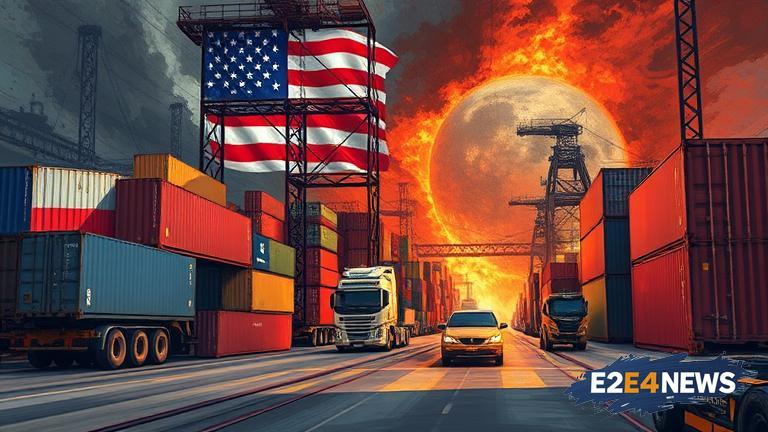The United States is on the brink of imposing tariffs on several countries, with President Trump’s August 1 deadline fast approaching. The tariffs, which could have far-reaching consequences for global trade, have sparked a flurry of diplomatic activity as countries scramble to negotiate deals with the US. China, one of the countries most affected by the tariffs, has been engaged in protracted trade talks with the US, but a deal remains elusive. Other countries, including the European Union, Japan, and India, are also at risk of being hit by the tariffs. The US has already imposed tariffs on several countries, including China, Mexico, and Canada, in recent months. The move has sparked retaliatory measures from affected countries, leading to a rise in trade tensions. The tariffs are part of the US’s efforts to reduce its trade deficit and protect American industries. However, critics argue that the tariffs will ultimately harm US consumers and businesses. The countries that have signed deals with the US to avoid the tariffs include South Korea, which agreed to increase its imports of US goods, and Argentina, which pledged to reduce its trade surplus with the US. Other countries, such as Brazil and Australia, are reportedly close to signing deals. However, several countries, including China, the EU, and Japan, have yet to reach an agreement with the US. The EU has warned that it will retaliate if the US imposes tariffs on its goods, while China has vowed to take ‘necessary countermeasures’ if the US goes ahead with the tariffs. The trade tensions have already had a significant impact on global markets, with stocks and currencies experiencing volatility in recent weeks. The situation is being closely watched by businesses and investors around the world, who are eager to see how the situation unfolds. The US has also been engaged in trade talks with the UK, which is seeking to negotiate a post-Brexit trade deal with the US. The UK’s trade minister has warned that the UK will not be ‘bullied’ into signing a deal that is not in its interests. The trade tensions have also sparked concerns about the impact on the global economy, with the International Monetary Fund warning that the tariffs could lead to a slowdown in economic growth. The situation is complex and multifaceted, with many different countries and interests involved. As the deadline approaches, it remains to be seen which countries will sign deals with the US and which will be hit by the tariffs. The consequences of the tariffs will be far-reaching, with potential impacts on businesses, consumers, and the global economy as a whole. The US’s trade policy has been a major focus of attention in recent months, with the Trump administration seeking to renegotiate trade deals and reduce the US’s trade deficit. The situation is being closely watched by governments, businesses, and investors around the world, who are eager to see how the situation unfolds. The trade tensions have also sparked concerns about the impact on the environment, with some arguing that the tariffs could lead to increased carbon emissions. The US has also been criticized for its approach to trade, with some arguing that it is protectionist and could harm the global economy. The situation is likely to continue to evolve in the coming weeks and months, with many different countries and interests involved. The US’s trade policy is a major focus of attention, with the Trump administration seeking to reduce the US’s trade deficit and protect American industries. The consequences of the tariffs will be far-reaching, with potential impacts on businesses, consumers, and the global economy as a whole.
